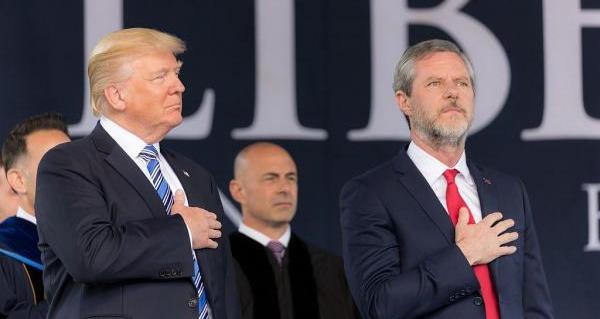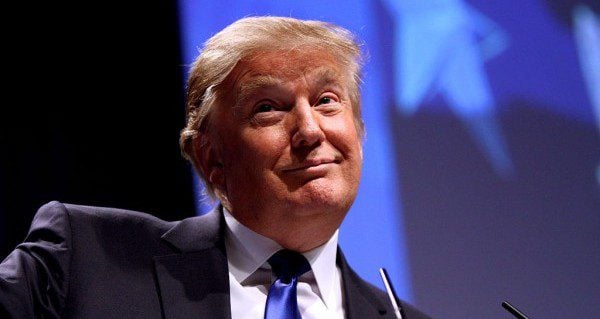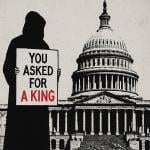“You mention the Bible..you’ve been talking about how it’s your favorite book…I’m wondering what one or two of your most favorite Bible verses are..and why?”

This was the question raised on Bloomberg’s “With All Due Respect” His answer? He doesn’t want to get into it. It’s a personal thing.
Given that Donald Trump is the front-runner in the Republican race and is even leading among white evangelical voters, it makes sense to wonder about how he practices his faith–and you know, since he claims the Bible to be his favorite book, surely he can say some more specific things about it, right?
His answer reminded me of Sarah Palin’s infamous non-answer to Katie Couric’s hardball question: “Which Newspapers do you read?”
“Um, all of ‘em, any of ‘em that, um, have, have been in front of me over all these years.”
Trump likes the whole Bible. Both testaments equally, in fact.
I remember a lot of evangelicals vigorously questioning Obama’s Christian credentials. The same thing doesn’t seem to be happening by evangelical voters. Back on August 6, Sarah Pulliam Bailey wrote that Trump was leading among white evangelicals. Apparently, he still is.
Thomas Kidd has recently questioned whether these “evangelicals” are really evangelicals, but that feels like a cop out to me. It seems like an instance of the “No True Scotsman” fallacy, whereby one simply moves the definitional goal-posts at will: “no true Scotsman would do such a thing.” No true evangelical would vote for Donald Trump.
No, perhaps the evangelical intelligensia and leadership know better, but their higher wisdom is not translating to the populace. There is something about Trump that is really resonating with them.
Fred Clark is probably truer to reality when he reflects on why the evangelical “values voters” are lining up behind Trump:
My sense is that this is — horrifyingly — due to Trump’s policies and his rhetoric. It seems like an ugly accusation, but I think we should take these white evangelical voters at their word and accept what they’re telling us: They really do like Trump’s ideas, his tone, and his language.
He points to Amy Sullivan’s suggestion that this support is not because of Trump’s Christian or evangelical credentials. Rather, perhaps they are finding something refreshing about his lack of them. They will claim now (as they did not claim with Obama) that Trump’s religious faith is irrelevant to his ability to lead the country.
If the evangelical support holds up over the long haul, it will speak volumes about what values these voters really hold dear.















